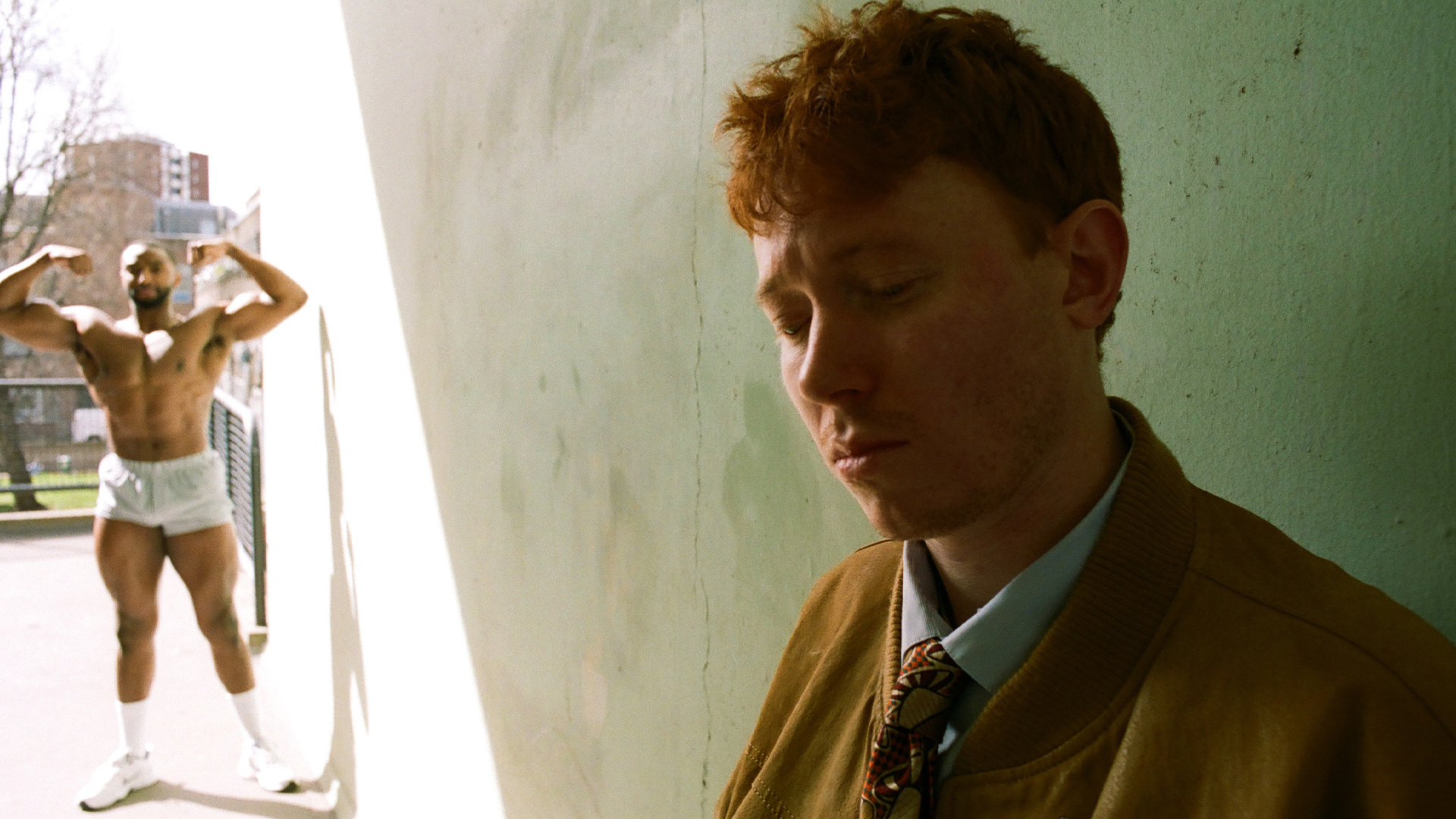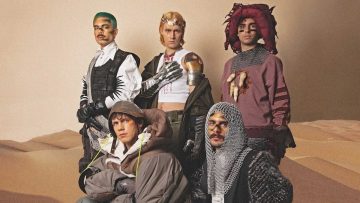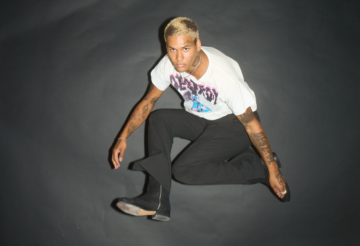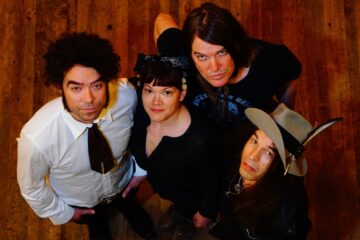★★★★★
Read our Space Heavy review below.
Space has always featured prominently in King Krule’s music. It’s the subject of some of his best songwriting; take the metaphorical walls closing-in on Man Alive’s ‘Perfecto Miserable’ or the haunting cries of “Is there anybody out there?” on the titular track from The Ooz. But it’s also present as a sonic quality. The emptiness, the anticipation, the build-up, the crescendo, the quivering choruses, lingering notes and sheer distance his music covers all make King Krule an artist who utilises space as well as anyone.
His ability to make purposeful songs, full of sounds and styles and poetic lyrics, yet maintain an overwhelming feeling of desolation and disinterest, is masterful.
Never before, however, has he used space better or more prominently than on Space Heavy. The album’s title suggests it may well play a part in proceedings and, sure enough, it does: mental space, physical space, cosmic space, space between people, between moods, between sounds, between what we feel and what we see. There are vacuums, voids and the space necessary to change.
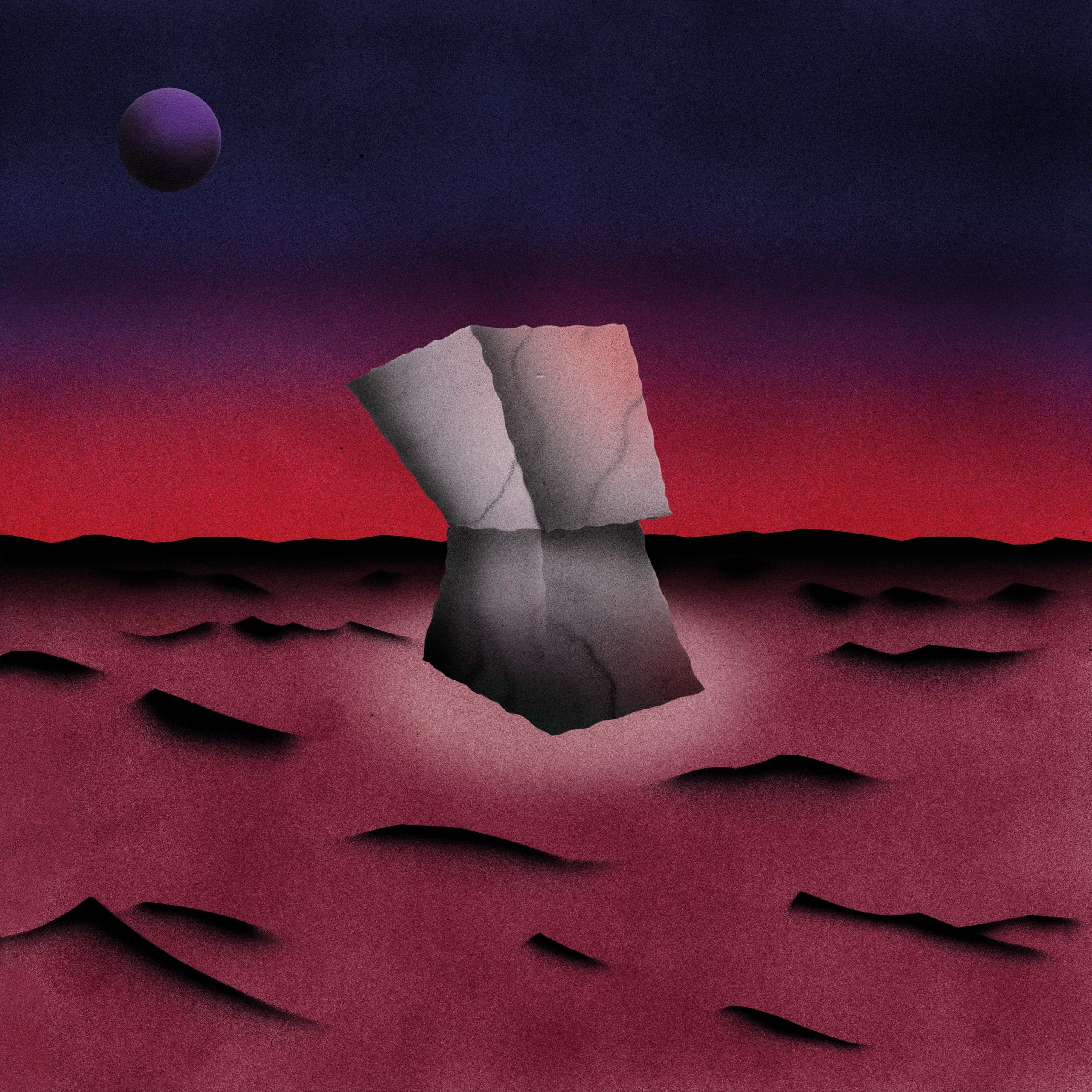
Space Heavy album cover
It’s evident from the very start of the album. It gets underway with a distorted, endless sound, but quite quickly this distortion transitions into a soft, melancholic plucked guitar-led tune called ‘Flimsier’. It was one of the record’s three singles, arriving the same week as the album, and its relevance to the project as a whole becomes clearer in the second half of Space Heavy.
‘Pink Shell’, the album’s second track, is the only song on the record I’m not particularly fond of. The sharp differences between punk and jazz are deliberate, but it, in my eyes, they just don’t work. Krule is also close to shouting from the off, and while he can do what he wants, it’s almost as if he’s not yet earned the right to make these more violent outbursts, which are often left for later on in songs.
The marked difference within and between songs is by design. Space Heavy ebbs and flows, its creator dipping above and below the surface of whatever weighted liquid he’s wading through. The album sees him reach moments of perhaps unprecedented sanguinity – you might even describe ‘Seaforth’ as something approaching the word ‘happy’ – while also traversing King Krule’s more customary land of barren grey.
‘Tortoise Of Independency’ and ‘Empty Stomach Space Cadet’ flow more smoothly, but contradiction is still key. On the latter, Krule sings happily: “If I die, don’t search for me” and “If I die, if I die, if I die just throw me in the trash.” There are subtle, jazzy inflections and melodies, and the ‘Empty Stomach Space Cadet’ is one of the best songs on the album.

Photo: Frank Lebon
A couple of well-timed interludes space out the project further, in the shape of ‘Flimsy’ and ‘When Vanishing’. King Krule’s music can be, at its best, overpowering, and both these songs take off a certain edge, while maintaining Space Heavy’s weight.
‘Seagirl’ – featuring the brilliant Raveena – and ‘Our Vacuum’ are my favourite consecutive tracks on Space Heavy. ‘Seagirl’ is an understated sister to ‘Seaforth’, commencing with a classic King Krule monotone verse, before Raveena adds a welcome higher-pitch, while matching the apathy of Krule.
With ‘Our Vacuum’, meanwhile, it’s not entirely clear who the song is directed to, but it’s clearly someone close to him who is also very far away. It’s masterful ahead of the album’s titular crescendo, ‘Space Heavy’, and from here, the album cools down to an understated ending.
When he first released ‘Seaforth’ and announced an early summer release date, you wondered if an optimistic King Krule album was coming. After all, since his last album in 2020, the man behind the moniker has become a father. It’s a strange thought, given how many people have witnessed Krule transform from boy to man himself, navigating the complexities of adolescence and his early twenties through an unflinching discography.
Read More: Godflesh interview: ‘Our legacy’s huge, but we’re a small band’
Space Heavy is not that album and it is now evident it never could be. Immaturity is not an issue to have afflicted King Krule. The topics covered as an 18-year-old on Six Feet Beneath The Moon make this abundantly clear. Some revelation post- the birth of this first child, in his late-20s, would be too simple. The evolution of the King Krule artist is less linear. Growth won’t follow its traditional trajectory when vulnerability has dominated his music since he was a teenager.
Rather, with King Krule, you see Archy Marshall continuing to explore in a way only he can – through shapes and spaces, ideas and sounds, in his bleakly beautiful way. He could never create a polished, perfect album, but I’d argue this genuine exploration is far better.

